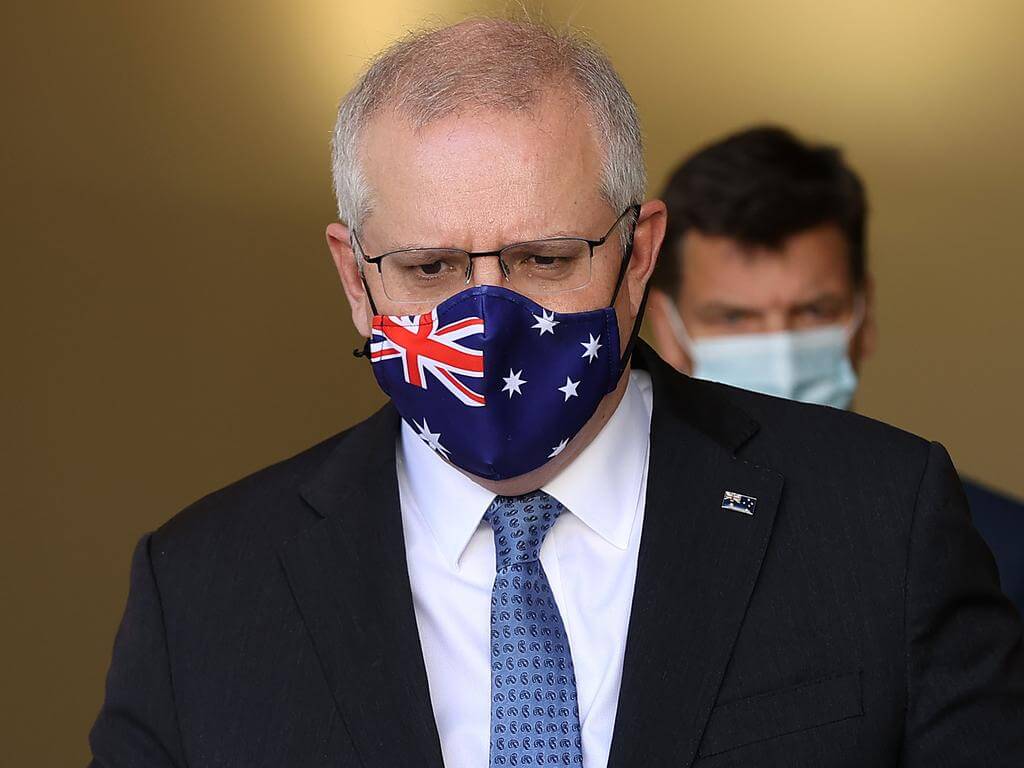Australian Prime Minister Scott Morrison blamed the developing countries for global emissions on Tuesday, a day after a United Nations (UN) report called for urgent interventions to reduce greenhouse gas emissions while accusing humanity of climate crimes.
In its latest report on Monday, the UN Intergovernmental Panel on Climate Change (IPCC) stated that the earth is warming up faster than anticipated and is hurtling towards 1.5 degrees, a threshold agreed on by world leaders to avoid worsening climate change impacts. It also mentioned that Australia’s land area has warmed by about 1.4 degrees and warned the country of serious challenges regarding climate change.
Acknowledging the report, during a press conference, Morrison said, “The developing world accounts for two-thirds of global emissions, and those emissions are rising. We need a solution that addresses the real commercial challenges of developing countries to solve this problem.”
He also noted that China’s emissions are more significant than the entire Organisation for Economic Co-operation and Development (OECD).
China ranks higher than Australia in total emissions. However, Australia performs worse than China when per-person CO2 emissions are factored in. For instance, the per capita emissions from China are 5.4 tonnes compared to Australia’s 17 tonnes.
However, Morrison pointed that he is against punishing developing countries for higher emissions. He said, “I understand and accept that the advanced world, the advanced economies of the world have developed their economies over a long time-principally based on fossil fuel industries.” “It’s a very fair argument that the developing world makes. Why should our economic futures be denied when advanced economies around the world have been able to go forward on that basis of their energy economies over a long period?” he added.
Morrison also said that climate taxes are not part of his policy to address climate change. Instead, he suggested technological breakthroughs to address climate change, which needs to be made available to developed and developing countries. “Our approach is technology, not taxes, for solving this problem. What is important is we ensure the technology breakthroughs that are necessary to transform the world over the next ten, 20, and 30 years,” he said.
Furthermore, Morrison argued that Australia has cut its greenhouse gas emissions “more than so many advanced economies in the world” and aims to achieve net-zero emissions as soon as possible or by 2050. However, Morrison refused to commit to net-zero emissions by 2050, saying, “I won’t be signing a blank cheque on behalf of Australians to targets without plans. Australians deserve to know the implications and the costs and what the plans are.”
Meanwhile, the deputy leader of the opposition Labor Party, Richard Marles, slammed the Australian government for “denying the science of climate change” and called on the government to immediately commit to the measures outlined in Paris Accord. Marles said, “The government likes to talk about the fact that it’s focused on technology-it will be good to see what they have committed to that.”
Earlier, the United Nations Educational, Scientific, and Cultural Organization (UNESCO) planned to put the Great Barrier Reef on the ‘danger’ list due to climate change and the loss of coral. However, UNESCO’s World Heritage Committee deferred the vote until June 2022 after intense lobbying by the Australian government.
Australia is likely to face increased international pressure to commit to a net-zero emissions target at the 26th United Nations Climate Change Conference (COP26) in Glasgow from November 9 to 19.
Australian PM Morrison Blames Developing Countries for Global Emissions After IPCC Report
Australian Prime Minister Scott Morrison blamed developing countries for two-thirds of global emissions and suggested technological breakthroughs instead of climate taxes to counter climate change.
August 11, 2021

SOURCE: FIJI NEWS
